CRN Cloud Services Roundtable: Solution Providers Need To Find The Right Channel-Friendly Provider And Get In the Game
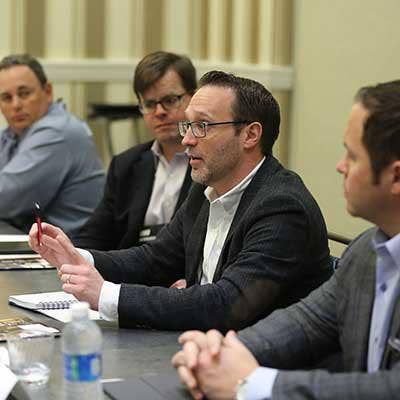
Channel-Friendly Cloud Services
A panel of cloud service provider executives broke down which partners are having the most success selling cloud, and where the opportunity lies for those that don't have cloud as a part of their portfolios during a cloud services roundtable hosted by CRN. Spoiler alert: VARs looking to add recurring revenue should consider embracing the cloud before someone else beats them to it.
Seated at the table was Scott Kinka, CTO and founding partner of Evolve IP; Keith Coker, CTO and founder of Green Cloud Technologies; Randy Jeter, CEO of RapidScale; and Andy Stewart, chief strategy officer for TierPoint.
The following are excerpts from the cloud services roundtable.
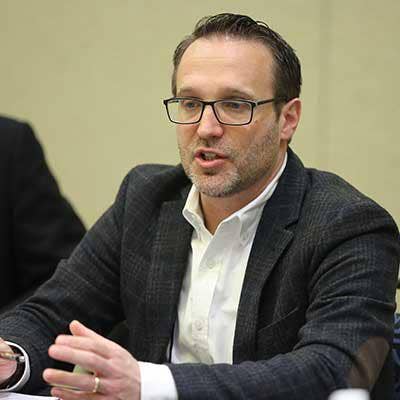
Which kind of partner -- including VARs, MSPs or telecom agent partners -- are having the most success selling cloud right now?
Scott Kinka: "From our experience, it's been the telco [agents] who went there first. They are saying, 'Hey, there's a piece of the pie over there I'm not getting today. I might as well ask about it.'
"The VARs, you've got this model where you've got the issue of 'I'm churning down, eating what I kill on a month-over-month basis. I've got to sell the server. I bill for it up front.' … There's this whole model of sell, buy, kill, sell, buy, kill, and then you try to build this services angle. The telecom agents are in recurring services already."
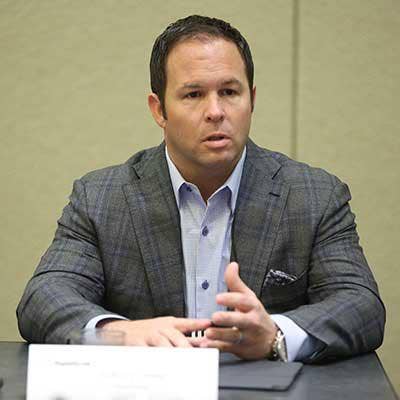
Which kind of partner -- including VARs, MSPs, or telecom agent partners -- are having the most success selling cloud right now?
Randy Jeter: "The deals we're selling with the telecom agents are the ones that are walking in and saying, 'We want you to design this solution.' We're going to bring you in, and maybe one other company. We don't want to create too much of a mess with five companies coming in like we did in a telecom and creating this gigantic scale of different solutions. Let's look at putting a couple of solutions together, designing and finding the right company to work with."

Which kind of partner -- including VARs, MSPs, or telecom agent partners -- are having the most success selling cloud right now?
Keith Coker: "The agent community; we put a lot of time in that in the beginning, and did not get a lot of fruit out of it. As of the last year, year and a half, our solutions have come closer together. There's an ability to understand the customer needs and which person the agent would best represent. I think we've seen more solutions from them that are viable and closable come to market."

Since many VARs are still accustomed to hardware sales, are you seeing resistance from the VAR community in selling cloud?
Andy Stewart: "A lot of it -- the resistance on the VAR -- it is the comp structure. They're used to selling and getting that big commission up front, and going to a residual model can be a challenge. They don't want to embrace it. For us, a lot of the training is just trying to build up the trust first and foremost, helping to ask the right questions, make them look smart with the customers, and then go in together and really try to sell that solution at that time."
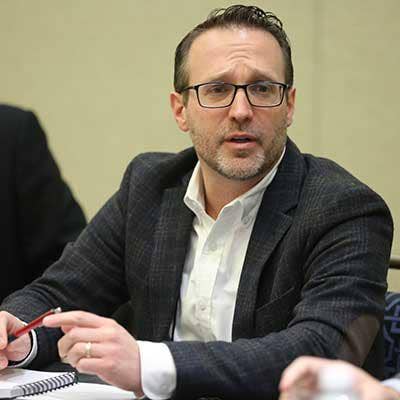
Since many VARs are still accustomed to hardware sales, are you seeing resistance from the VAR community in selling cloud?
Scott Kinka: "We find, frankly, that our VAR partners have come along slower than the telecom partners. One is the compensatory issue, without any question. They know they have to get there. The issue is what do you do in the bridging months while you're trying to convert that model over?'
"I think that there is a compensatory issue and perhaps a fear issue that [keeps] a lot of VARs on the sideline. They [are] more capable to have the conversation, but have more fear of the conversation and engaging us."

Since many VARs are still accustomed to hardware sales, are you seeing resistance from the VAR community in selling cloud?
Keith Coker: "A number of VARs are seeing declining revenue streams, so their businesses are not as healthy as it once was a year or two, or four years ago. They're very reluctant [with] funds … to really change behavior."
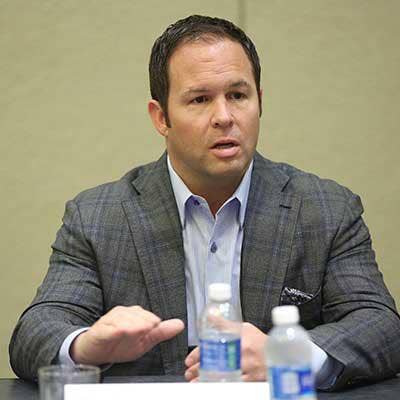
Since many VARs are still accustomed to hardware sales, are you seeing resistance from the VAR community in selling cloud?
Randy Jeter: "[There will be a] huge uptick over the next couple of years, as you see people shifting away from the hyper-scale to a managed approach, partially because of some of these [large-scale public cloud] outages. The outages are creating conversations. We might become one small part of that, and then grow into a relationship beyond that."

Tell us about the luck you are having with the MSP community, and if this group of partners is embracing cloud.
Keith Coker: "We've spent at least the early years of the company's [history] primarily focused on MSPs. About 60 percent of our revenue stream comes through managed service providers. That group is, probably the best way to say it is -- it's a distrustful group. They want to make sure you're sticking around. They want to make sure that their reputation is good with their customer if they recommend you or if they use their services.
"Longevity in that community has given some inroads to where that's a very consistent channel for us and very steady growth with a lot of time investment around the owners of those businesses."
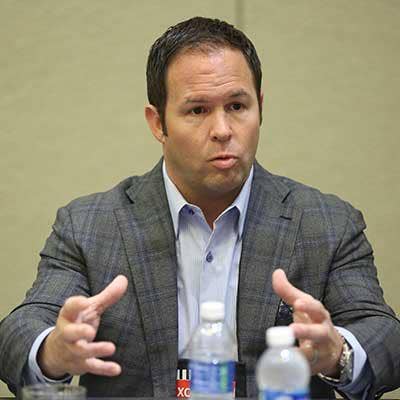
Tell us about the luck you are having with the MSP community, and if this group of partners is embracing cloud.
Randy Jeter: "MSPs are trying to figure out how they get a partner that they can have a strategy with. … It's a partnership. If any of us stood up here and said we wanted to compete against the [in-market MSPs], we'd be stupid. We'd be completely stupid at taking that approach."

Why should more partners be looking to add cloud to their portfolios?
Keith Coker: "We have a marketing message that says, 'If you're not talking to your customer about cloud, somebody is.'
"It's a call to action to the guys that don't want to have that conversation. If they're not willing to have that conversation … then they're going to miss the revenue string. The first guy in to have that conversation locks in the account."

Why should more partners be looking to add cloud to their portfolios?
Scott Kinka: "We tell [the traditional telecom partner], triple your revenue without signing a new logo. [It's] really easy. The average fully loaded telecom account is going to be, if you take hosted PBX, as an example, between $20 and $30 a head. Fully loaded with network, you're about $40 a person in a business. The average fully loaded compute deal is going to be in the $100 to $120 a head. [More] by the time you add in the applications, DR, backup, all that kind of thing. Don't sign another customer, and triple your revenue. There's an opportunity right there."